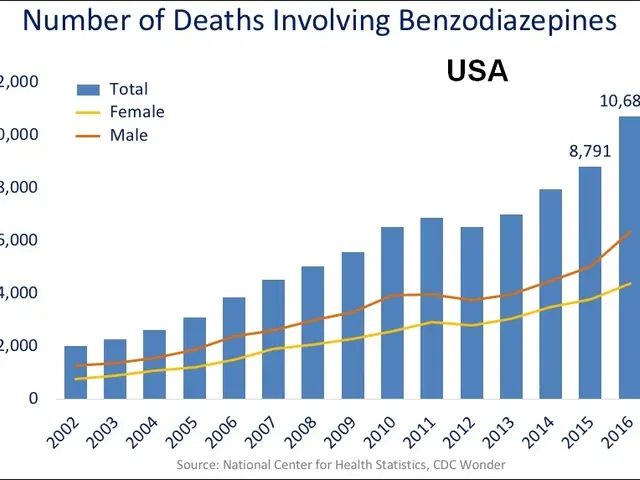Foods that may alleviate mania and depression
Managing bipolar disorder, a mental health condition characterised by alternating episodes of mania and depression, can be challenging. However, a growing body of evidence suggests that certain foods may have a positive impact on mood and behaviour, and can help relieve symptoms produced by these conditions.
One such group of nutrients are Omega-3 fatty acids, found in salmon, flaxseed, and walnuts. These essential fats are believed to reduce depressive symptoms by supporting brain health and reducing inflammation.
Another dietary approach is the Whole Foods Ketogenic Diet, which emphasises healthy fats, low carbohydrates, and high-quality proteins. This diet has shown potential mood-stabilizing effects and reduction in manic symptoms within days to weeks, possibly through improved mitochondrial function and reduced neuroinflammation.
A balanced diet rich in fruits, vegetables, whole grains, lean proteins, and healthy fats is also beneficial for optimal brain function and nutrient balance. Avoiding processed foods supports stable blood sugar and brain metabolism.
It's important to note that certain substances, such as alcohol, caffeine, and high-sugar diets, can destabilise mood by causing blood sugar fluctuations and neurochemical imbalances, and should be avoided.
Some patients explore supplements like magnesium, B vitamins, and probiotics, but these should only be used under medical supervision. Emerging evidence also suggests CBD products may improve mood and reduce symptoms of mania and depression, though research is still preliminary.
Folic acid, also known as vitamin B9, acts as a supporting agent for brain development and functioning. Foods rich in folic acid include citrus fruits, spinach, mustard greens, Brussels sprouts, asparagus, and beef liver. Low levels of folate are associated with depression and may not respond as well to antidepressant treatment as people with healthy folate levels.
Tryptophan, an amino acid found in milk, dairy products, whole milk, cheese, eggs, turkey, chicken, fish like tuna, and soybeans, helps the body produce serotonin, a neurotransmitter that affects emotions and mood. Tryptophan deficiency has been linked to several health conditions, including heart disease, diabetes, autism spectrum disorder in children, chronic kidney disease, cognitive decline, and depression.
Dark chocolate contains compounds called flavanols, which are plant-based substances with anti-inflammatory and antioxidant properties, helping to improve and preserve brain function. Research shows that dark chocolate acts as a mood regulator, improving a person's mental health and reducing depressive symptoms.
People with mania or depression should reduce or avoid the consumption of alcohol, refined carbohydrates and sugar, caffeine, and foods that promote weight gain, as they can worsen symptoms and other health issues like insomnia and anxiety.
Before making any dietary changes or starting supplements, it's crucial to consult a healthcare provider or dietitian experienced in bipolar disorder.
- Omega-3 fatty acids, found in salmon, flaxseed, and walnuts, are believed to reduce depressive symptoms by supporting brain health and reducing inflammation.
- The Whole Foods Ketogenic Diet, emphasising healthy fats, low carbohydrates, and high-quality proteins, has shown potential mood-stabilizing effects and reduction in manic symptoms.
- A balanced diet rich in fruits, vegetables, whole grains, lean proteins, and healthy fats is beneficial for optimal brain function and nutrient balance.
- Certain substances, such as alcohol, caffeine, and high-sugar diets, can destabilise mood by causing blood sugar fluctuations and neurochemical imbalances.
- Folic acid, found in citrus fruits, spinach, mustard greens, Brussels sprouts, asparagus, and beef liver, acts as a supporting agent for brain development and functioning.
- Dark chocolate, containing flavanols with anti-inflammatory and antioxidant properties, improves and preserves brain function, acting as a mood regulator and reducing depressive symptoms.





